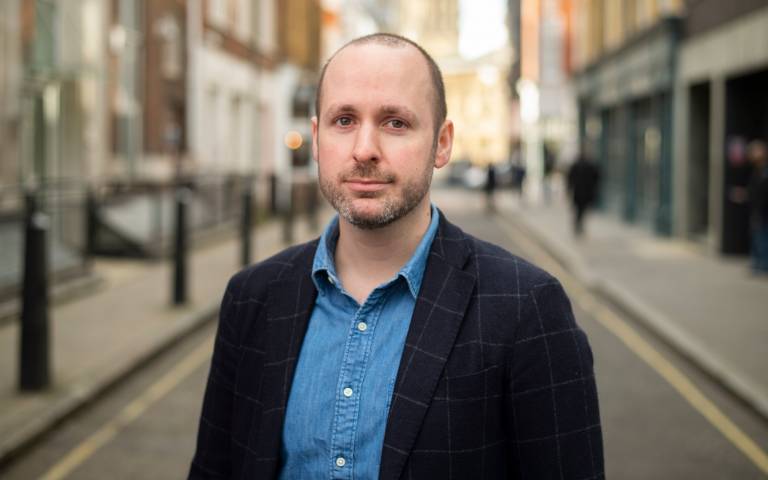Opinion: Twitter was right to suspend Trump, but no one should be banned forever
20 January 2021
While persistent violators of guidelines should be suspended, in some cases for a long time, permanently banning people from social media is morally unacceptable due to its central position in modern communication infrastructure, argues Dr Jeffrey Howard (UCL Political Science).

Twitter has permanently banned President Trump’s account, instantly cutting off his favourite way to reach his 88 million followers. The decision has rightly revived intense debate about what kind of speech should be allowed on social media networks, and whether such platforms have too much unaccountable power.
But the decision also raised a philosophical question that has received much less scrutiny. Is it ever morally acceptable for platforms to banish someone forever?
At first glance, it is tempting to think so. These are private companies, and there is no legal duty to provide a platform for everyone’s speech. If a user persistently violates a network’s rules by inciting violence, or posting other harmful content, why should mere removal of that content be the only recourse? Banning persistent violators better protects people from the harm this content inspires, and could deter others from posting it in the first place. Certainly, it is difficult to muster much sympathy for Trump.
Yet the prospect of permanently banning citizens from the large social media platforms should unsettle us. While long suspensions can be justified, permanent bans cannot.
These platforms are no longer just private companies offering a service. Together, they are a dominant infrastructure of communication. They are privately owned, but they form part of the basic framework in which we now live our lives, and through which we interact as citizens.
Consider the significance of Facebook. Nearly 7 in 10 adults in the United States use Facebook, with most of them using it daily. More than a third of Americans regularly get their news on Facebook. Add Twitter and YouTube to this picture, and it is clear that social media platforms together largely constitute the new public square. They are where citizens now go, more than anywhere else, to express their views, learn what’s happening in the world and engage with others.
Banning someone from this conversation is no small matter. We all have a powerful interest in the opportunity to participate. It is this very interest in expressing our views, and in hearing what others have to say, that underpins the principle of freedom of speech. And while the legal right to free speech binds only governments, the values that underpin it have wider moral implications. That’s why the social media giants all routinely talk about the importance of respecting free speech on their platforms: they recognize, rightly, that this value places moral demands on their networks.
This very commitment to free speech is incompatible with the practice of platform excommunication. Suspensions for persistent violators can surely be justified as a sanction, to incapacitate them and to deter others. In serious cases — such as that of the president — these suspensions should be severe, up to a year or even longer.
But a permanent suspension is always morally suspect. Even wrongdoers have a fundamental moral right to be part of the public discourse. While they can forfeit this right through wrongdoing, this forfeiture should be temporary, not permanent.
There is another reason why permanent bans are morally defective: they treat wrongdoers as beyond reform. Yet it is a familiar conviction — one that animates the defenders of rehabilitation in criminal justice circles — that wrongdoers should always be treated as capable of moral redemption. We should give them an opportunity to learn their lesson and regain their standing as participants in civic life, after they have served their just punishment.
The philosophical basis of this principle is simple. If we view someone as fit for blame and punishment, we are condemning them for having made bad choices. But if so, it means we think of them as the kind of person who can make good choices, but simply has not. The attitude that condemns them simultaneously demands they do better. “Blame,” the philosopher Christine Korsgaard notes, “declares to its object a greater faith than she has in herself.”
One might object that citizens banned from Twitter can take refuge elsewhere. The problem with this objection is that, if wrongdoers have misbehaved across social media, then they could well find themselves banned from all of it. As a temporary matter, that can be justified. But full banishment from social media is incompatible with the principle that everyone has a moral right to participate in public discourse, and the conviction that wrongdoers we’ve cast out should have a path back from the wilderness.
The point isn’t that wrongdoers will necessarily reform. No one predicts that Trump will have a moral epiphany anytime soon. Rather, the point is about the general attitude we ought to show our fellow citizens who do wrong. We ought to view them as capable of change.
What if they reoffend persistently upon their return? Just suspend them again. But first, give them what you’d want to be given: a chance.
This article was originally published in The Washington Post on 19 January 2021.
Links
- Original article in The Washington Post
- Dr Jeffrey Howard’s academic profile
- UCL Political Science
- UCL Social & Historical Sciences
 Close
Close

